Spring is in the air and all over Coorg the coffee plantations are extravagantly ablaze with clusters of pristine white blossoms. It’s the time to be back in the plantations in the densely forested Western Ghat, to savour the delights of birdsong and blooms for this wondrous season of rejuvenation and vitality. Karnataka’s coffee trail marches through breathtaking vistas from Coorg to Chikmagalur, offering visitors a fabulous adventure of aromatic delights. Though they bloom for just a brief spell, the blossoms with their heady jasmine-like scent are a glorious sight that is sure to get embedded in your memory for a lifetime. These blossoms will transform into cherry coloured berries on their way to create your favourite brew of coffee beans.
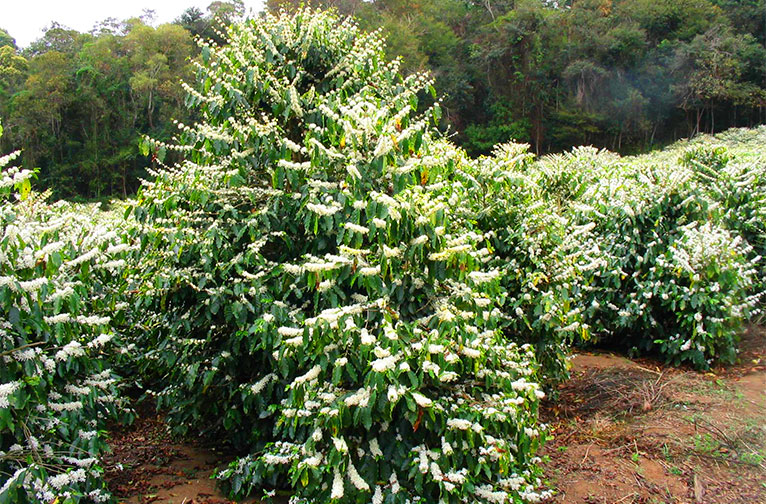
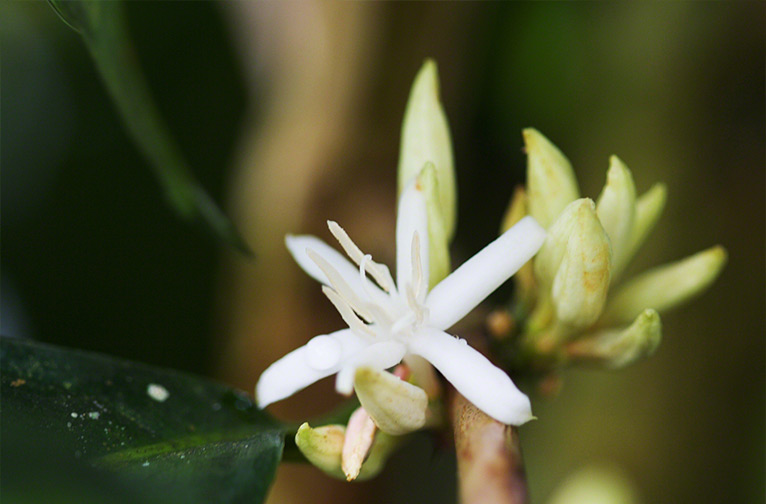
Since the blossoming period of coffee flower is so short, in the months of February and March, it’s an excellent idea to enjoy a homestay at a coffee plantation in Coorg, not to miss this heavenly treat… alternately time a day trip here during this period. Did you know that it’s not just the coffee beans that are used for a delicious beverage? Even the flowers are dried and make a delightful herbal drink and coffee wine can be made of the juice released while tearing the skin off from the beans. And if you are buying honey from bees that have gorged on the coffee blossoms here don’t be surprised to discover nuances of coffee flavour in it. You can go coffee bean picking and dig deep first-hand, into the crop-to-cup process of coffee making on the trail from the plantation to the estate factory.
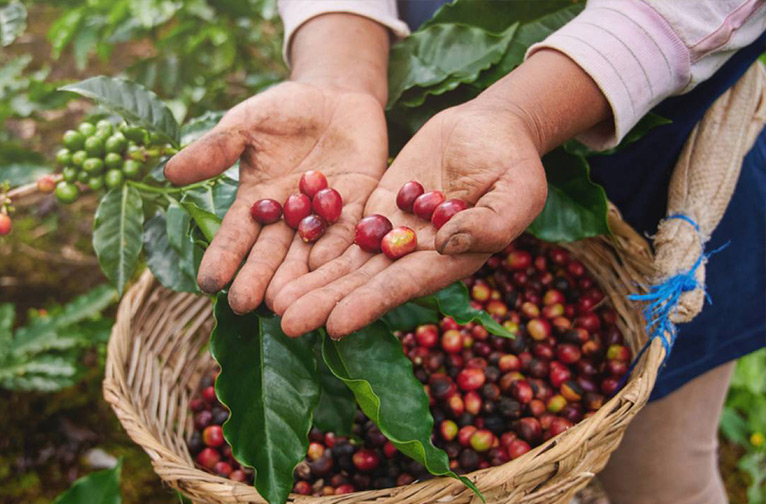
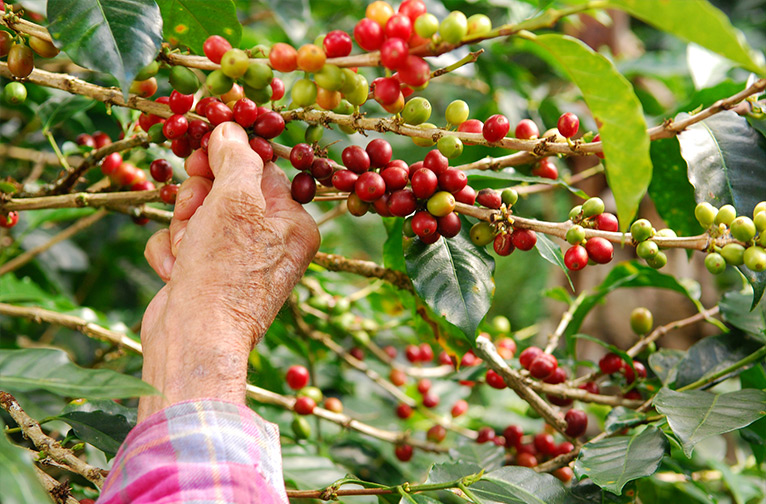
Bet you didn’t know that coffee was not indigenous to India, like tea! It was the 17th century Arab Sufi saint Baba Budan, who arrived in the hills of Chikmagalur with seven coffee beans hidden in his beard from Yemen (where he first tasted and loved the brew in the port town of Mocha) which he planted near his hermitage for his own use. In Yemen, exporting the green beans was illegal, but the saint could not resist his favourite drink. Since ‘seven’ was considered a sacred number he was forgiven this fall from grace. Later, in the 19th, the British in India discovering these plants in local backyards gave a whole new lease to these humble beginnings–and the rest is history as coffee plantations mushroomed apace! Coorg’s first coffee estate was set up in 1854 by an Englishman named John Fowler. Today 40 percent of India’s coffee is planted in the Coorg region.
Did you know it was an Ethiopian shepherd who noticed that his goats were getting energized by munching on the berries of the coffee plant? It was the monks at the monastery, where he took the berries, who burnt them thinking they were evil; it was only then that the true aroma of the roasted coffee, which people love today, first made its appearance. Arabica coffee in India originates from Baba Budan’s coffee beans while Robusta is a modified, more climate sturdy version of Arabica.
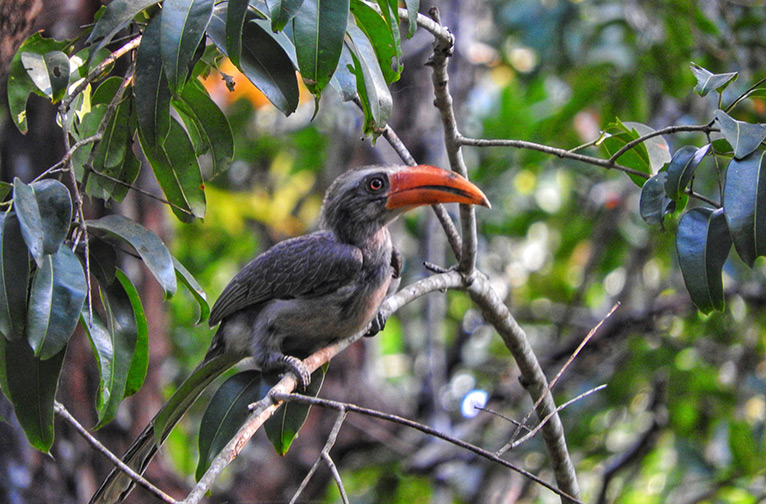
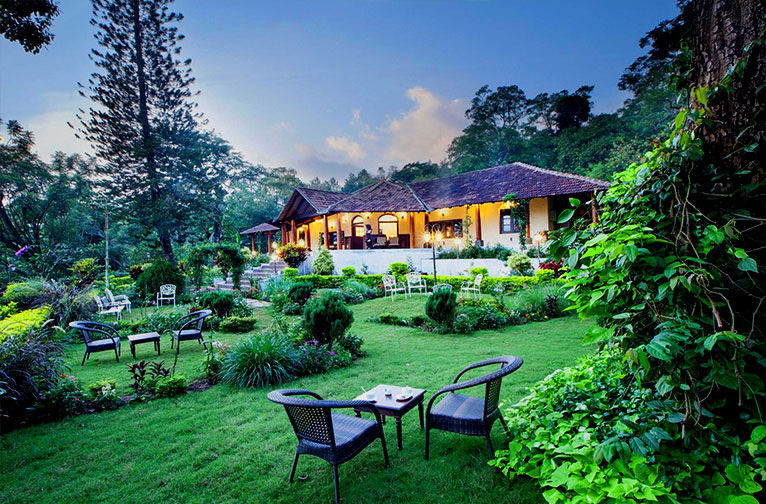
A bonus of blossom time in Coorg is that it’s also a hectic time in the plantation with sprinklers, standing in for the rains so dear to the coffee plants, and pickers keeping track of the emerging berries after the withering of the flowers. It’s an excellent time to explore the intricacies of this industry, which creates jobs for the locals; you can also have a good time engaging with the very distinctive Kodava culture. Enjoy the cyclic rhythms of plantation life while navigating your bicycle through the trails where the jasmine scent of the blossom hangs heavily in the morning air. You should also make your acquaintance with the region’s avifaunal residents such as the white-cheeked barbet, Malabar barbet and Malabar grey hornbill.